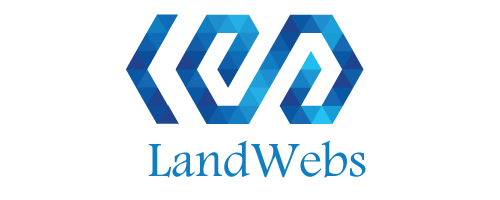Breaking Barriers and Empowering Women through Education: The Role of NGOs
Angelina Jolie once said, “There is no greater pillar of stability than a strong, free, and educated woman.” These extremely powerful words deeply resonate with the transformative role which education plays to empower women. Education is a catalyst to change. Education holds the power to break down barriers and it truly empowers women to overcome any societal restrictions.
In today’s world, women’s empowerment holds a critical focus on gender equality and developing stronger societies. The main driver for women’s empowerment is education. Education empowers women with confidence, skills, and knowledge to challenge societal norms and pursue their aspirations.
In this blog, we will discuss the role of education in women’s empowerment and how it opens doors of opportunity, makes women claim their rights, and empowers young women to design a brighter future for themselves and their communities.
Access to Education: A Key to Women’s Empowerment
Access to education is a basic right for women. Education provides women with the necessary knowledge and skills to participate fully in society by boosting their economic opportunities and helping them make informed decisions about their lives. It also helps to combat gender inequality by challenging traditional gender roles and promoting gender equality. However, many women around the world still face significant barriers to accessing education, including poverty, discrimination, and cultural norms. Governments along with international firms should work in order to address these challenges and to promote equal access to education for all women.
With education, every woman will have the life she wants and be able to live her dreams by pursuing her values and goals. According to the studies, if a woman completes 12 years of their education, child marriage can drop by 64%, and help prevent health complications such as early pregnancy, childbirth, or early birth. Educating women and young girls even boosts a country’s economy and reduces the risk of war and extremism.
Only 39% of countries are noted with equal proportions of boys and girls enrolled in secondary education. Even in developing countries, 30% to 85% of women are staying at home to take care of the house and the family where their brothers are getting educated. To have a similar playing field for women and to expand professional opportunities, women require the same set of skills and experience.
Breaking Barriers: Challenges Hindering Women’s Education
They are several barriers that prevent girls and women to complete their education, restricting women’s empowerment. These involve the college and school cost, difficulty to reach school because of lack of transportation, or due to any conflict in their country. These barriers are varied based on many factors like geographical location, socioeconomic status, infrastructure, and cultural norms. Let’s delve deeper into the common barriers faced by women to get education access.
Socio-cultural Norms: Deep-rooted stereotypes and cultural norms prioritize traditional gender roles, that limit educational opportunities for women. Even societal expectations might make women prioritize motherhood, early marriage, and household chores over education.
Early Marriage: Early marriage is prevalent in specific regions, which leads girls to stop education at a young age. Early childbearing even disrupts the education of girl education, which make them face challenges to continue their studies.
Financial Constraints: Economic factors, like lack of financial resources, and poverty pose certain barriers to education. Families with financial difficulties prioritize investing in male education over female.
Safety and Security: Concerns about women’s safety on their way to educational institutions could be certain trouble for parents, mainly in areas with high gender-based violence and improper infrastructure.
Lack of Infrastructure: Most rural areas lack proper infrastructure, which involves schools at a reasonable distance apart from the basic amenities like safe water, clean toilets and transportation facilities. This lack of infrastructure makes it tough for women to attend school regularly.
Quality of Education: Differences in the education quality within the rural and urban areas, as well as improper facilities, inadequate teachers, and old teaching methods impact the whole educational outcomes for women.
Social & Gender Bias: Gender discrimination could offer an unfavorable learning environment for women. Biased attitudes from the community, peers, and teachers negatively influence girls’ self-esteem and whole educational experience.
Lack of Role Models: Restricted representation of women in leadership and no female role models in many fields hinder girls’ aspirations and also limit their self-esteem in what they could do through education.
The Empowering Impact of Women’s Education
- Breaking the Chains of Inequality:
Access to education is a basic right for girls which has the super power to break the gender inequality chains. Education offers women the tools to overcome and challenge discriminatory biases which restrict their opportunities. By accessing women and girls with educational opportunities, we provoke them to grow beyond societal expectations, chase their aspirations, and grant some meaningfulness to society.
- Economic Empowerment:
Education is a crucial driver of the economic empowerment for women. It empowers employability, leverages job prospects, and makes them get higher-paying positions. Through the right education, women get financial independence, which improves their lives and also empowers economic growth in their families & communities. Educated women can highly invest in their children’s education, for creating a prosperous future.
- Decision-making Power:
Education encourages women by offering them the critical thinking skills and knowledge needed to make informed decisions regarding their well-being and health. Educated women are likely to get the right to be involved in household decisions, to talk about their rights, and to influence policies that evoke gender equality. With education, women get the confidence to raise their opinions, shape their lives and challenge societal norms.
- Health and Well-being:
Education for women has a profound impact on women’s well-being and health. Educated women are likely to get reproductive health outcomes, as they possess knowledge regarding sexually transmitted infections, safe childbirth practices, and contraception. Education even fosters awareness about hygiene, nutrition, and health practices, leading to better physical and mental well-being. With education, women can have control over their health and can likely break free from the restrictions imposed by gender-related health problems.
- Political Participation:
Education has a pivotal role to empower women’s social & political participation. It improves civic engagement, communication skills, and critical thinking, making women participate in decision-making processes actively. Education leverages leadership qualities, that enable women to get into the shoes of politics, advocacy groups, and community organizations. By adding women’s voices in these areas, we could build representative and inclusive societies which get benefited from several perspectives.
- Empowering Future Generations:
Education is the crucial factor that throws a ripple effect on future generations, where educated women turn to be role models of change within their communities and families. If women are empowered with education, they can pass on their aspirations, values, and knowledge to their children, which shapes a future generation that embraces equal opportunities for all. Education as a catalyst for intergenerational progress can break the chains of restricted chances and empower successive women generations.
- Education overcomes employment segregation.
A community with educated women is less probable to subscribe to irrational gender stereotypes which empower employment segregation. Generally, caring and cleaning are considered to be women’s work. Even in female-dominated areas, like school teaching, leadership roles are rewarded to men. When only women become more educated, they get specialist skills that qualify women for diverse positions.
Conclusion
Empowering women through education is a crucial step toward building a more just and equitable society. When women are educated, they are better equipped to make informed decisions about their lives, participate fully in the workforce, and contribute meaningfully to their communities. However, in most Asians countries like India, many women face significant barriers to accessing quality education, including poverty, discrimination, and cultural norms. These challenges perpetuate the cycle of poverty and inequality, keeping women from reaching their full potential.
Despite these challenges, some NGOs are working tirelessly to empower women through education. United Way of Hyderabad is one such organization that has been making a significant impact in this area. Their efforts are focused on providing access to quality education to women from disadvantaged backgrounds, enabling them to break free from the cycle of poverty and achieve their dreams.
United Way of Hyderabad’s initiatives have included scholarships for girls, vocational training programs, and support for women entrepreneurs. By investing in education and skills development, they are empowering women to take charge of their futures, become financially independent, and contribute positively to their communities.
As a genuine NGO in India and Hyderabad, United Way of Hyderabad has earned the trust and support of countless individuals who believe in their mission. Their work is transforming communities and building a brighter future for all. By supporting United Way of Hyderabad in its efforts to empower women through education, we can make a significant difference in the lives of many, helping to break down barriers and create a world where every woman has equal access to opportunities and resources.
The post Breaking Barriers and Empowering Women through Education: The Role of NGOs appeared first on The Total Entrepreneurs.









